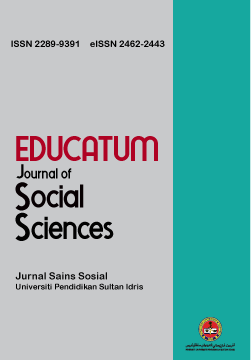Local Government System in Nigeria: Legal, Fiscal and Political Overview
DOI:
https://doi.org/10.37134/ejoss.vol8.2.3.2022Keywords:
Local governments, Joint Account, Local government Autonomy, Local government ReformsAbstract
Since the return to civil rule in 1999, there has been sustained agitation for granting local governments autonomy as a prescription for them to deliver efficiently and effectively their assigned responsibilities. Thus, the article examines the local government system in Nigeria from both legal, fiscal, and political viewpoints. It focuses on how the context affects their structure, financial management, capacity, and performance. A combined reading of the provisions of the 1999 constitution, judicial and extra-judicial pronouncements will be revealed that everything relating to supervision, monitoring, and control of local governments in Nigeria is the prerogative of the state governments. The constitution charges the state governments to ensure their existence under a law, specifying their functions, structure, finances, and composition. Through qualitative study, drawing from the literature on the local government system in Nigeria and in-depth interviews with government officials and experts, the paper established that the extent to which state governments are administering and performing oversight activities over their local governments has significantly limited local governments in several ways. This explains the incessant agitation for granting local governments autonomy. Therefore, the paper recommends far-reaching reforms that will instil a viable local government system capable of harnessing local resources towards effective and efficient service delivery. However, it cautioned the efficacy of granting local governments autonomy as canvassed by several stakeholders, given how intertwined the assigned responsibilities of both state and local governments are.
Downloads
References
Asaju, K. (2010). Local Government Autonomy in Nigeria: Politics and Challenges of the 1999 Constitution. International Journal of Advanced Legal Studies and Governance, I (1).
Attorney-General of Abia State & Ors. vs Attorney General of the Federation & 33 Ors. (2006) 7 NILR71.
Attorney-General of Ogun State v Attorney-General of the Federation (2002). 18 NWLR (Pt 798) 232.
Attorney-General, Lagos State Vs. Attorney-General Federation (2004) 12 NWLR (Pt. 833)
Ben-Caleb, E., Madugba, J. U., Ajibode, O. O. & Ben-Caleb, J. O. (2021). Financial Autonomy and Rural development in Ogun State, Nigeria: A Stakeholder’s Perspective. Public Administration Issues, 5 (1), 41-55. Retrieved from https://cyberleninka.ru/article/n/financial-autonomy-and-rural-development-in-ogun-state-nigeria-a-stakeholder-s-perspective/pdf
Bratton, M. (2012). Citizen Perceptions of Local Government Responsiveness in Sub-Saharan Africa, World Development, 40(3),516-527. https://doi.org/10.1016/j.worlddev.2011.07.003
CFRN (1999). Constitution of the Federal Republic of Nigeria
Ebeku, K. S. A. (1992). The Separation of Powers in Local Government in Nigeria. Journal of African Law, 36(1), 43-51.
Hezekiah, O. P and Michael, A I. (2021). The State-Local Government Joint Account in Nigeria: Assessment of Facts and Realities. Review of Public Administration and Management, 9 (292). Available at: https://www.longdom.org/open-access/the-statelocal-government-joint account-in-nigeria-assessment-of-facts-and-realities.pdf
Isah, M. (2021, August 6). The Quest for Credible LG Elections in Nigeria. Blueprint. https://www.blueprint.ng/the-quest-for-credible-lg-elections-in-nigeria/
Koko, N. M., Tayeb, A. M., & Razali, S. Z. B. (2021) Restructuring State-Local Relations in Nigeria: Issues and Perspectives. Malaysian Journal of Social Sciences and Humanities 6 (8) pp. 406-415. e-ISSN : 2504-8562. DOI: https://doi.org/10.47405/mjssh.v6i8.908. Available at: https://www.msocialsciences.com/index.php/mjssh/article/view/908/689
Koko, N. M., Tayeb A.M., & Razali S. Z. B. (2021a) ‘The Supreme Court and the Management of Revenue Allocation in Nigeria’, A Poster Presentation at the 13th Annual Manchester Metropolitan University Postgraduate Conference, 17th March 2021. Available at https://e-space.mmu.ac.uk/627494/
Nasir, J. (2012). The Distribution of Powers and Responsibilities in the Federal Republic of Nigeria. African Journal of Federal Studies, 2(1), 25-56.
Oates, W. E. (1999). An Essay on Fiscal Federalism. Journal of Economic Literature, 37 (3) pp. 1120-1149.
Odo, L. U. (2014). The Challenge of Local Government Autonomy in Nigeria. International Journal Of Advanced Studies In Ecology, Development And Sustainability ., Volume 2,(741–8763), 101–112.
Ogundipe, S. (2016, November 30). State-Local Gov’t Joint Account Must be Abolished. Premium Times.
Ojoye, T. (2018, December 20). Should INEC take over the Conduct of LG Elections. Punch. https://punchng.com/should-inec-take-over-the-conduct-of-lg-elections/
Oladele, G. A. (2020). Legal Implications of State Governments’ Control over Internally Generated Revenue of Local Government Councils in Oyo State, Nigeria. Beijing Law Review, 11, pp. 899-910. Available at: https://www.scirp.org/pdf/blr_2020121715582823.pdf
Salaudeen, L. (2020). How Independent are State Electoral Commissions? The Nation. https://thenationonlineng.net/how-independent-are-state-electoral-commissions/
Stoker, G. (1991) Local Government in Context. In G. Stoker, The Politics of Local Government, 2nd Edition. The Macmillan Press Ltd, London.
Suberu, R. T. (2008). The Supreme Court and Federalism in Nigeria. The Journal of Modern African Studies, 46 (3) 451-485. Doi:10.1017/S0022278X08003376
Tanzi, V. (1996). Fiscal Federalism and Decentralisation: A Review of Some Efficiency and Macroeconomic Aspects. Annual World Bank Conference. https://mef.gob.pe/contenidos/pol_econ/documentos/Fiscal_Federalism_Decentralization.pdf.
Timothy, D. M. (1996). Barriers to Local Government Capacity in Nigeria. American Review of PublicAdministration,26(22). https://doi.org/https://doi.org/10.1177/027507409602600202
Uwais, M. L., CJN (2005). The Evolution of Constitutionalism: The Role of the Supreme Court under the 1979 and 1999 Constitutions. Inaugural Distinguished Fellow delivered 31st May 2005.
Vambe, J. T. (2018). State-Local Relations in Nigeria and its Implication on Public Service Delivery at the Local Government Level. American Research Journal of Humanities Social Science, 01(04), 01-09. Retrieved from https://www.arjhss.com/wp-content/uploads/2018/12/A130109.pdf
Wilson, G. (2013). The Politics of Local Government Reforms and Democratic Governance in Nigerian Local Governments. Developing Country Studies, 3 (1). Retrieved from https://www.iiste.org/Journals/index.php/DCS/article/view/3892/3950
World Bank (2002) Nigeria: State and Local Governance in Nigeria (English). Washington, DC: Wotld Bank. Retrieved from http://documents.worldbank.org/curated/en/442501468780898611/Nigeria-state-and-local-governance-in-Nigeria.
Downloads
Published
How to Cite
Issue
Section
License
Copyright (c) 2022 Nuruddeen Muhammad Koko, Azmil Mohd Tayeb, Siti Zuliha Razali

This work is licensed under a Creative Commons Attribution-NonCommercial-ShareAlike 4.0 International License.





